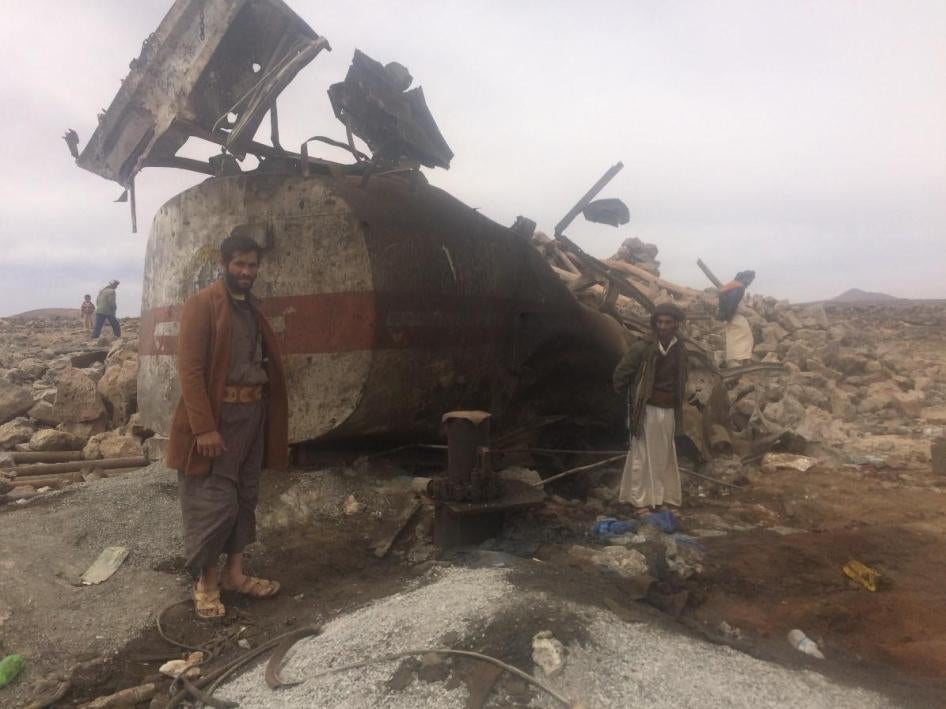This week, the Obama administration halted the sale of nearly US$400 million of weapons to Saudi Arabia due to concerns about civilian casualties in Yemen. Airstrikes by the Saudi-led coalition that have unlawfully killed Yemeni civilians and destroyed homes, markets, and hospitals have used weapons components made by the arms manufacturer Raytheon, which would have benefitted from the deal.
The US decision is a step in the right direction, and follows calls by Human Rights Watch and others to suspend arms sales to Saudi Arabia until it curtails unlawful airstrikes and credibly investigates alleged war crimes. Other major arms suppliers, including the United Kingdom, France, and Canada, should not only follow suit but go further – making clear to the Saudis that weapons will not be sold so long as they are being used to commit war crimes.
Since March 2015, both the Saudi-led coalition and Yemen’s Houthis and allied forces have frequently violated the laws of war.
In October, the coalition bombed a crowded funeral hall in Yemen’s capital, Sanaa, killing and wounding several hundred people. The Obama administration announced it would review its support.
In December, the administration reached an “interim” decision, blocking the US$390 sale of the Raytheon-made weapons. Yet a US$3.5 billion military helicopter sale to Saudi Arabia would go forward. The US also announced it reduced intelligence sharing with the Saudis on some issues, but increased it on others. US training to the coalition to improve targeting is being reconfigured. But US forces would continue refueling coalition warplanes on bombing missions, direct participation in military operations that makes the US a party to the conflict and potentially complicit in coalition war crimes.
Indeed, if the US sought to insulate US military personnel from potential liability for aiding and abetting unlawful coalition airstrikes, its action falls short of the mark. Human Rights Watch has documented how US-supplied weapons were used in at least 23 apparently unlawful attacks that have killed Yemeni civilians. In September, the coalition used a US weapon produced in October 2015 – months after the frequency of coalition violations had become clear – to bomb a village water drill, killing at least 31 civilians, including three children.
Still, blocking even one weapons sale sends a strong signal to the Saudis that continuing to commit war crimes comes with costs. But further action is needed if coalition war crimes are to end.
With fewer than 40 days left in office, the Obama administration should be working to ensure US-Yemen policy is corrected by halting all weapons sales to the Saudis. It should also release the results of its high-level review, and investigate the possible role of US forces in unlawful coalition attacks. Doing so would make clear that the US-Saudi relationship cannot remain the same so long as Saudi Arabia continues to violate the laws of war.
It would also set a marker for the new administration to follow.








